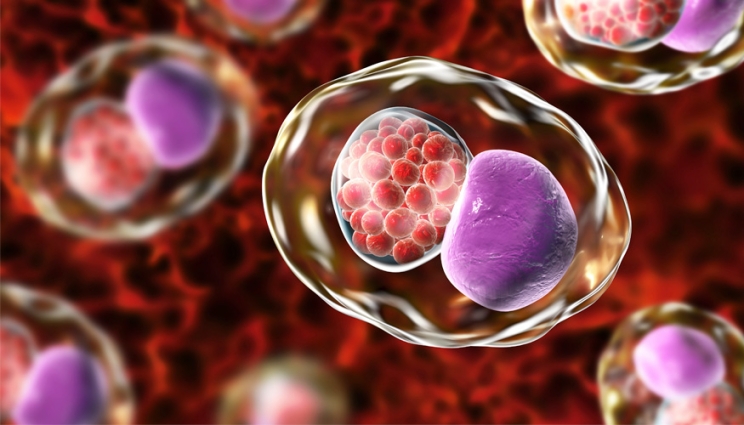Testing immune responses against Chlamydia
Chlamydia trachomatis is the most common bacterial sexually transmitted pathogen in the world and can cause ocular, respiratory, and gastrointestinal infections. As the number of chlamydial infections continues to increase, there is a growing and urgent need for the development of a safe and efficacious vaccine.
In a new study, researchers from LLNL and UC Davis tested different vaccine combinations—targeting three different chlamydial proteins—on mice to establish their ability to induce humoral and cell-mediated immune responses and protect the mice against a respiratory challenge (test) with Chlamydia muridarum (the bacterial species infecting rodents). The respiratory challenge route was used as a screening method to identify protective antigens that can then be tested in the genital challenge model.
The proteins polymorphic membrane protein G (PmpG) and plasmid glycoprotein 3 (Pgp3) were tested independently and then in combination with the major outer-membrane protein (MOMP) to determine which antigen produced the most protection against the bacterial infection. The goal of this study was to determine the ability of MOMP, PmpG, and Pgp3 antigens (alone and in combination) to induce protective immune responses against a Chlamydia muridarum intranasal challenge, while also analyzing vaccine effectiveness against the 15 major serovars, i.e., antigen groupings, found in Chlamydia.
Results showed that PmpG and Pgp3 elicited weak protective responses when used as single antigens. When PmpG was combined with MOMP, the results were no better; and when Pgp3 was combined with MOMP, Pgp3 antagonized the protection elicited by MOMP. However, after being vaccinated with just MOMP, significant humoral and cell-mediated immune responses were observed in the mice.
These results show that neither PmpG or Pgp3, alone or in combination with MOMP, elicit better protection than MOMP alone against a respiratory challenge and, therefore, researchers expect similar outcomes in the genital challenge model. Following their study, the team recommends continued research to find a well-conserved antigen that elicits broad protective immune response and protects against all the Chlamydia trachomatis variations.
[A. Slepenkin, S. Pal, S. Hoang-Phou, A. Abisoye-Ogunniyan, A. Rasley, P. D’haeseleer, M.A. Coleman, and L.M. de la Maza, The Polymorphic Membrane Protein G Has a Neutral Effect and the Plasmid Glycoprotein 3 an Antagonistic Effect on the Ability of the Major Outer Membrane Protein to Elicit Protective Immune Responses against a Chlamydia muridarum Respiratory Challenge, Vaccines (2023), doi: 10.3390/vaccines11030504.]
–Physical and Life Sciences Communications Team
Tags
Bioscience and BioengineeringBiosciences and Biotechnology
Physical and Life Sciences
Featured Articles








